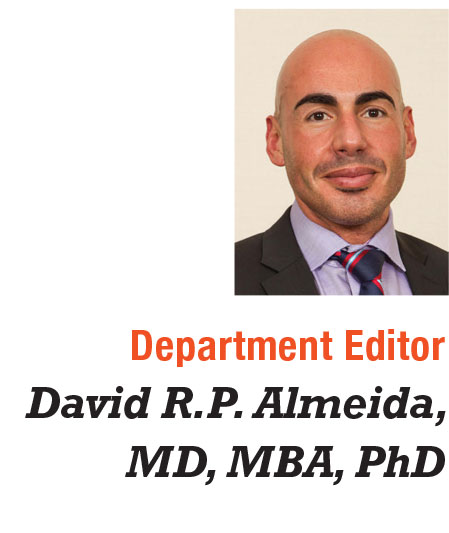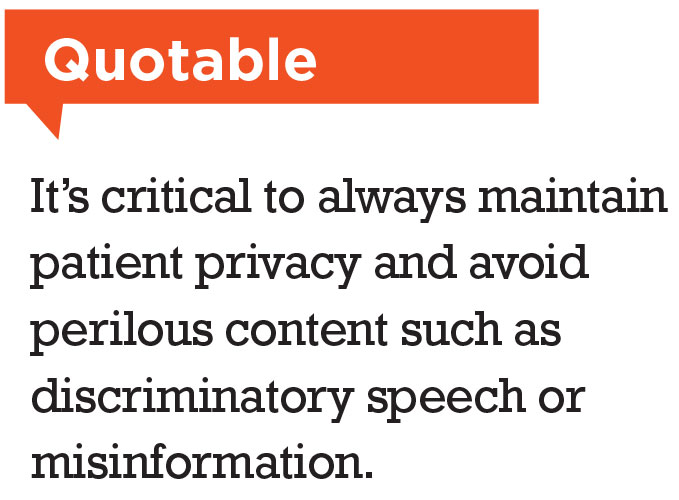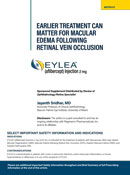 |
|
Bio Dr. Almeida is a vitreoretinal surgeon at Erie Retinal Surgery in Erie, Pa. DISCLOSURE: Dr. Almeida reports no relevant financial relationships. Twitter: @davidalmeidamd Email: [email protected] |
A common question that I’m asked involves examples of physicians breaking bad on social media. Although we routinely delve into the strategic and operational components of physician use of social media, it can be challenging to execute these without realizing you may be jeopardizing your professional ethics.
State medical boards instruct physicians always to be aware of the potential consequences for online behaviors that violate accepted standards.1 Today, in the moonlight of the Halloween season, we will emphasize this point with a couple of real-life horror stories.
Don’t violate patient privacy
An emergency room doctor in Rhode Island was fired and reprimanded by the state medical board because of a Facebook post on a trauma patient that physician had seen in the emergency room.2 Although the physician didn’t include the patient’s name explicitly, enough details were present that others in the community could identify the specific individual.
This physician violated privacy laws and contravened the objective of ensuring privacy for health information. The clear takeaway is that physicians can face civil or criminal penalties for disclosing identifying patient information even without the patient’s name.
A picture is worth 1,000 words
At Stony Brook University Medical Center in New York state, a medical student was disciplined for posing–that is, making the thumbs-up gesture–next to a cadaver.3 This insulting, insensitive, and idiotic action exemplifies how one can take an error in judgment and make it significantly worse by posting it on social media.
 |
Consider and contemplate any clinical photo, diagnostic image or medical video before immortalizing it by posting it on social media. Failure to do so can and will result in you being haunted by previous poor choices.
How to avoid your own social media nightmares
Although it may seem redundant, please remember that your online behavior–as a retina specialist, physician, or any other licensed health-care professional–should mirror your offline professional reputation.
Maintain your professional ethics online and err on the side of caution when posting content, whether images or videos. It’s critical to always maintain patient privacy and avoid perilous content such as discriminatory speech or misinformation. RS
REFERENCES
1. Greysen SR, Johnson D, Kind T, et al. Online professionalism investigations by state medical boards: First, do no harm. Ann Intern Med. 2013;158:124-130.
2. Conaboy C. For doctors, social media a tricky case. Boston Globe. April 20, 2011. Available at: http://archive.boston.com/lifestyle/health/articles/2011/04/20/for_doctors_social_media_a_tricky_case/?page=full. Accessed October 1, 2021.
3. Lam C, Barrios J. State officials look into Stony Brook cadaver case. Newsday. February 2, 2010. Available at: https://www.newsday.com/long-island/suffolk/state-officials-look-into-stony-brook-cadaver-case-1.1737603?cmpid=nl_newsday_now. Accessed October 2, 2021.



